How Sheika Daley Went From Math Major to A-List Celebrity Makeup Artist
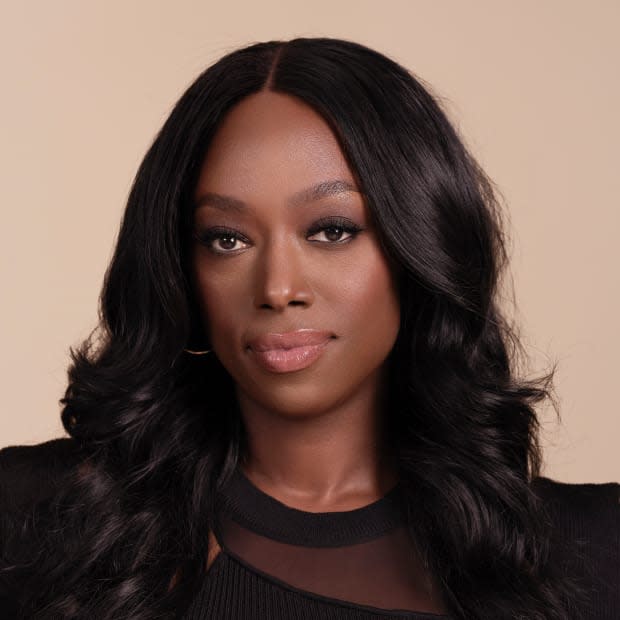
Photo: Courtesy of Lancôme
In our long-running series, "How I'm Making It," we talk to people making a living in the fashion and beauty industries about how they broke in and found success.
In a way, Sheika Daley's penchant for makeup was in her blood. Growing up as a dancer, she'd watch as her mother did the makeup for all the girls in the dressing room ahead of the annual end-of-the-year dance recitals. She was smitten, even then.
"My mother is a painter and an artist," Daley tells Fashionista. "I watched her do her own makeup every single day, and she would go get her hair done at the salon, so I watched her hair be done. I was really always into those [beauty] things because of her."
While her interest in beauty was always there, Daley didn't pursue it as a career path until a bit later. She majored in math and then worked in HR at a mental health facility before eventually returning to her passion for makeup, working the beauty counters at Victoria's Secret and MAC Cosmetics, and then doing makeup for dancers in a Miami strip club.
Today, Daley has made a name for herself as one of the most sought-after makeup artists for celebrities: She's gone on a world tour with Nicki Minaj, serves as Zendaya's go-to makeup artist and has also worked with Beyoncé, Taraji P. Henson, Jodie Turner-Smith, Keke Palmer, Anok Yai, Letitia Wright, Naomi Ackie, Kelly Rowland, Jourdan Dunn, Normani, Serena Williams and La La Anthony, among others.
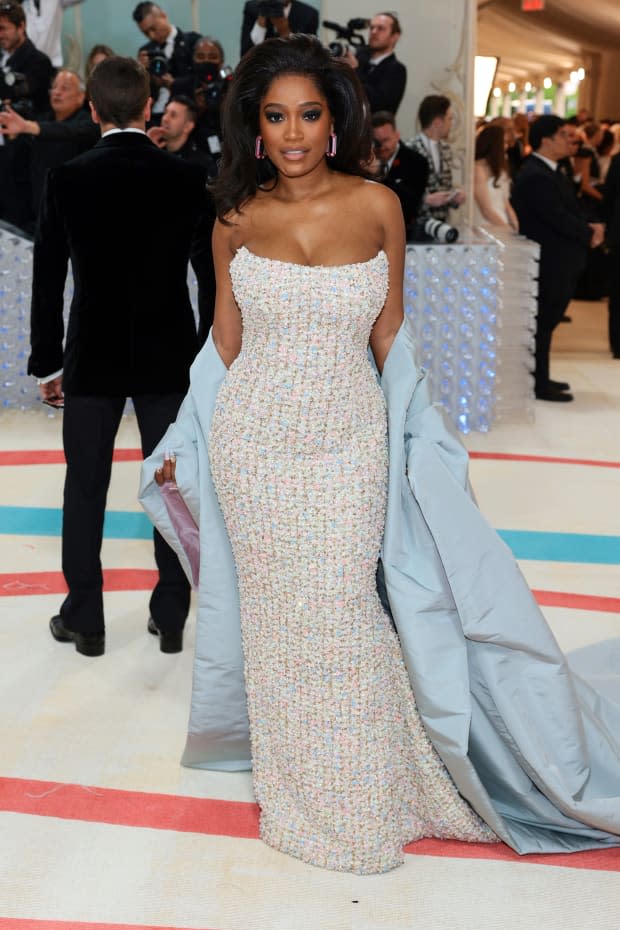
Photo: Dimitrios Kambouris/Getty Images
Brands are also clamoring to work with Daley: Lancôme, for which Zendaya serves as a spokesperson, recently tapped her as its global international artist.
"It's really great to be able to work with [the brand] to really come up with the different things that I feel are missing in the industry," she says. "I love being with the brand. They're really, really inclusive and they're very innovative."
Ahead, Daley shares the story of her career trajectory, including what made her pivot from math to makeup, why she prioritizes advocating for representation in the beauty industry and more.
I read that when you entered college you were a math major. At what point did you land on beauty as a path you wanted to pursue, and what was that transition like?
I don't really have a time where I made a clear transition. I kind of always had one foot in, one foot out kind of thing, because my parents are very old-school Caribbean. I had to struggle with knowing that I was really great at something and I was going to really let my parents down if I decided to go with my heart [and pursue a career in makeup], versus what everybody expected me to do. But I think the pivotal moment for me was when I was in college, and I was doing way more makeup and hair when I was supposed to be doing my classes.
I was like, 'This is what makes me happy,' and I was making other people happy. So I didn't want to go back to school and just be stuck in a classroom when I knew that my heart was being fulfilled by helping people and making them feel good.
I ended up getting a job with my cousin working at this mental health facility as the HR manager, which was great because it really tapped into my skill of mathematics. But at the same time, I still had this urge and desire to really be into the art of something, whether it was makeup or nails or hair. I just wanted to be a part of that. I remember doing my sister's makeup for homecoming and prom and other events like that, and it just made me feel so good. So I just decided, you know what, I'm just going to go for it. I'm just going to take a leap of faith, and I'm just going do it.
What was the first step once you decided to pursue makeup professionally?
I was working at Victoria's Secret first, and that's not really a makeup makeup store, but it was really something that I focused on while I was working there. And I left there after trying to get into the MAC store for like a year. Once I got in, I felt so accomplished.
I was like, 'You can do it. You got into the store, you can make this a career. You just got to figure out how and study the greats that you've been studying and just figure out how you can make a career path out of it.' I also had something to prove to my parents — I couldn't fail at it and I couldn't not take it seriously because I was really walking away from something that was potentially going set me up for life.
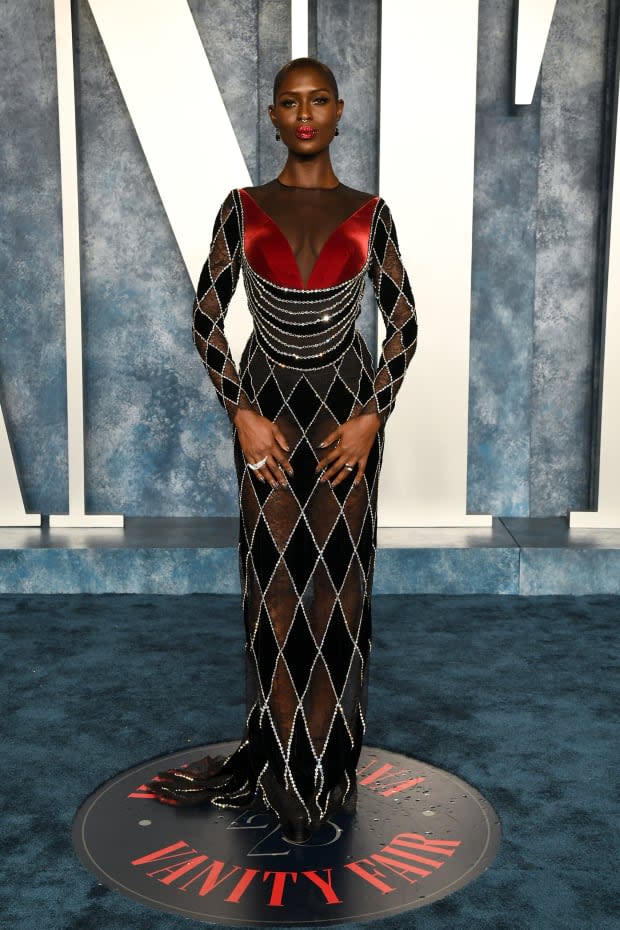
Photo: Jon Kopaloff/Getty Images
And when you did make that transition, were your parents supportive of that?
I think they wanted to be. My dad was not having it, because my dad is a financial advisor and he was a stockbroker as well, so his goal for me was to take over his practice. He was a little bit disappointed in the fact that I wanted to go and play makeup. And he hadn't really had any proof of it being successful to the point where he was like, 'Okay, you could really make a great living off of it.'
My mom was [supportive] — because you know how moms are, just like, 'She should do what she wants to do.' It took me a little while to convince my dad, but I did eventually. Once I did and I had his 100% support, I was able to kind of take it to the levels where I'm taking it now.
How did your early retail work experiences with beauty brands influence your career overall?
They've played a major role. I learned a lot about the industry by working at the MAC store. There was a lot that I didn't know — I was really, really green.
They taught me about my portfolio and making sure it was up to par. [I learned about] agencies, agency fees, photographers, working with models, really getting inspirations and moods from the different fashion weeks, paying attention to trends and all these different things that you don't really think about when you're going into just being a makeup artist or even a hairstylist. But they taught me to really focus on the business. So they've played a really, really pivotal role in where I'm at right now.
Is there a moment in your career you would identify as your "big break?"
I've always felt like, for me, my big break was just getting that first celebrity client.
The next big break was going on a world tour with Nicki Minaj. Another big break was landing the global artistry [role] at Lancôme. So I feel like I've had continuous growth. I can't recall one particular thing that has happened where I'm like, 'Oh, this is my big break.' Because I'm continuously trying to raise the bar every chance I can.
On the subject of celebrity clients, one of your longtime clients is Zendaya, who I know really loves makeup and cares about beauty. How did that partnership come about and how has your relationship evolved over the years?
I was introduced to her, I think she was maybe 13 or 14. She was a baby. And I was introduced to her through, I want to say Law [Roach] because I worked with Law when he was working with La La [Anthony]. So we became friends. From there, I ended up getting called to do a photoshoot with Zendaya and then was just with her ever since. She's like my little sister because I really met her when she was a baby and really growing into herself and growing into her womanhood. We've had great conversations about life, and she listens. She's got great perspective and I have great perspective, so it's been like a real sisterhood.
All of my clients end up turning into family because we really have a deep connection. I'm literally in their faces for hours and before they get ready for some of the biggest moments in their lives.
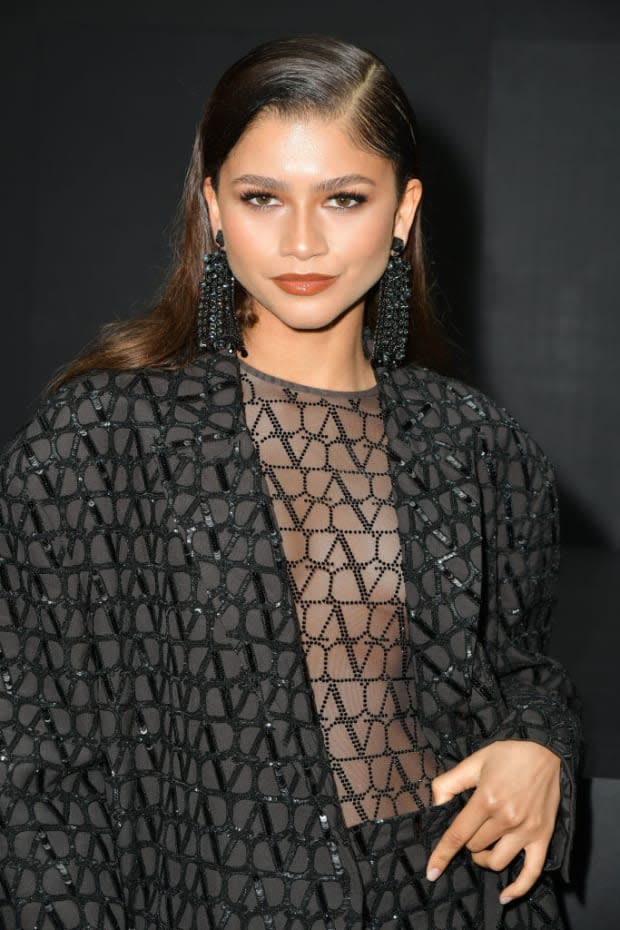
Photo: Dominique Charriau/Getty Images
Something that has really stood out to me is that so many of your clients are Black women. How important to you is representation for women of color in the beauty and makeup space, and how have you perhaps seen things change in the span of your career?
Oh, it's changed so much. At the beginning of my career, for my book, I had to keep it pretty much an all-White book. Because there weren't a lot of Black models that were working, there was a perception that they didn't need a lot of Black makeup artists. See, I get categorized as a 'Black makeup artist' because I do a lot of Black women. I'm glad to represent that, but I do see myself as a well-rounded artist that can work with any complexion, any skin tone. And at the beginning of my career, I didn't work with anybody that was of my complexion.
Then you get on set and they see that you're a Black woman, and they're unsure as to whether or not you can actually do the job. So when I first started, it was definitely not like [today], where there's such an influx of inclusivity in the brands because we now have a lot more women — especially Black women and Black makeup artists — who are really looking to find something that works for them. There's still work to be done, but to see all the brands that are trying to improve and make strides to make sure that everyone is included, it's really nice to see.
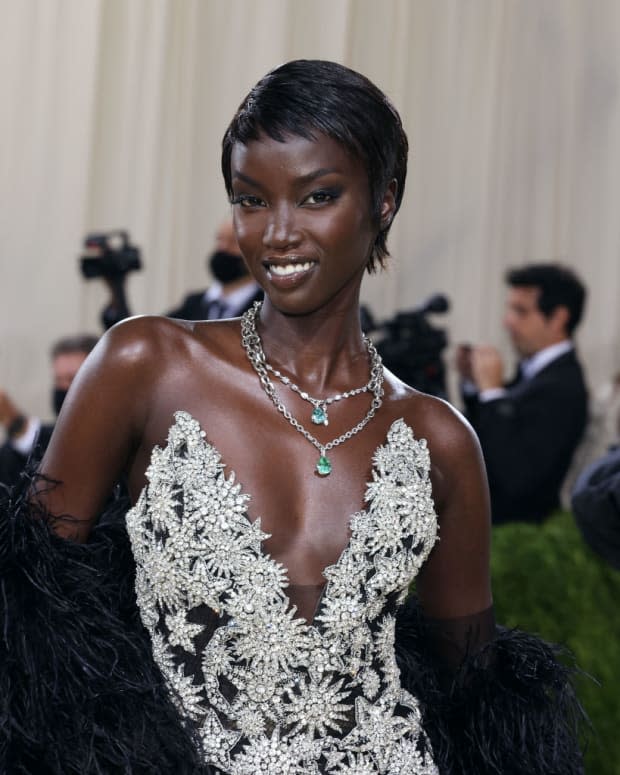
Photo: Taylor Hill/Getty Images
Have you seen more Black makeup artists behind the scenes?
I do. There's been a big need for them because of the emergence of Black models and Black campaigns. But it's not even just Black makeup artists. I feel like makeup artists in general are educating themselves on how to do Black skin, and that is something that I'm really happy to see.
How would you describe your approach to creating makeup looks? Is it a collaborative process between you and your client?
It depends on the client. Some clients give me the freedom to do whatever I want. They literally sit in the chair and they say, 'Show Sheika what I'm wearing,' and then they close their eyes, they wake up and I'm done. They trust me and they know that I'm not there to just show off makeup, I'm really there to collaborate with the entire team and make whatever I'm doing fit in with all the different pieces of the puzzle so that it's one beautiful, cohesive look on the red carpet.
But then you have other clients that want a mood board and want to go through some different looks. Sometimes Jodie [Turner-Smith] likes to have pictures sent to her, so I'll send some stuff over to her maybe the day before or even the morning of. Keke [Palmer] is another one too, she sits back and she lets me just do whatever I want, and then if there are any modifications that need to be made, we'll do some modifications. My clients trust me. And knowing that they give me that trust, I take it very seriously to make sure that I give them 100%.
What has been the most rewarding experience of your career so far?
That is such a hard question. I mean, gosh, I've done a world tour. I've worked with Pat McGrath, I've worked with Zendaya, I've worked with Beyoncé, I'm a global artist now at Lancôme — I don't know how to pick one thing. I'll just say, my collective of everything that I've accomplished up until this point has been the most rewarding experience. Just to get to where I am right now — starting from not knowing anything in the makeup industry, not going to school, being self-taught and working in the strip clubs of Miami, to being interviewed by Fashionista and being a global artist for a big, iconic company, Lancôme. I feel that is what is the most rewarding, just being able to get to this point right now and still be relevant and desired and wanted in the industry.
On the opposite end, what has been the most challenging experience of your career so far?
The traveling. Traveling and maintaining relationships has been really difficult. Not being able to be home for holidays and missing birthdays and moments like that, has been a big sacrifice. My family are the ones that are sacrificing because they don't get to see me as often as they would like.
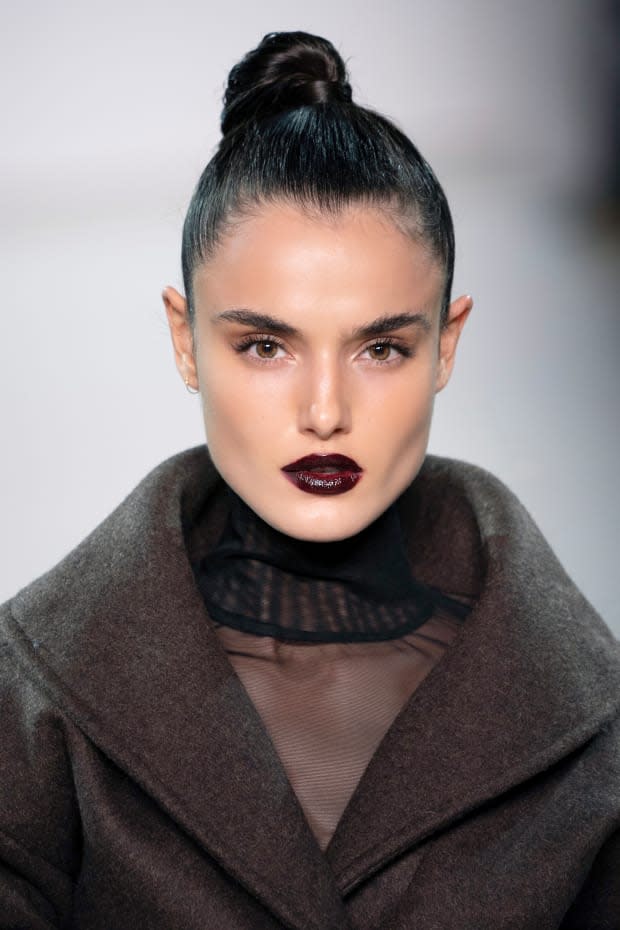
Photo: Launchmetrics Spotlight
What career advice would you give to your younger self?
Keep going. Keep going, mama. Don't stop. You're going to have those bad days, but those good days are going to make up for all those bad ones. So just keep going no matter what, keep pushing through. You're going to have doors that are going to open, you're gonna have doors that are going to close. You're going to have people that are going to say yes, you're going to have people that are gonna say no, but the no's are just as important as the yeses. So take them all in stride and just keep it moving.
This interview has been edited and condensed for clarity.
Want the latest fashion industry news first? Sign up for our daily newsletter.

